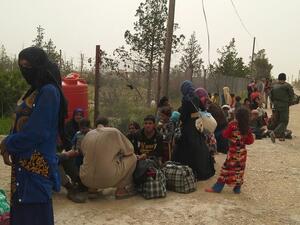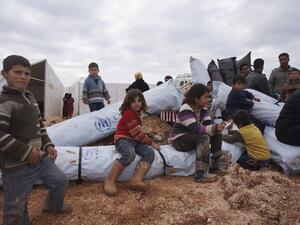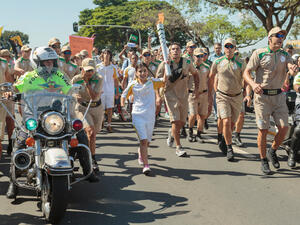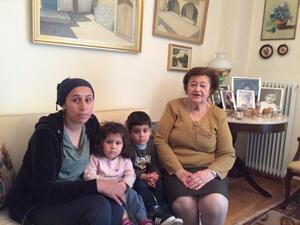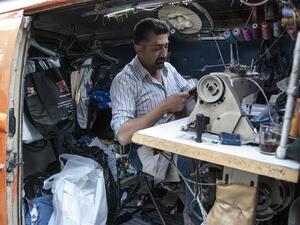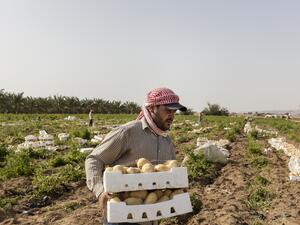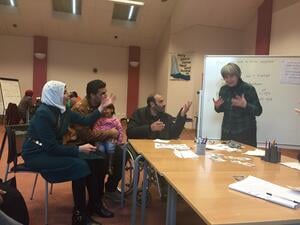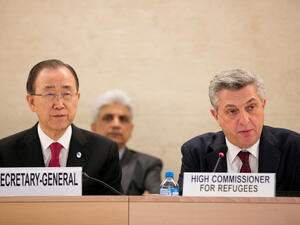UNHCR assesses needs and dire situation of displaced in western Syrian town
UNHCR assesses needs and dire situation of displaced in western Syrian town

A baby gets some rest in one of the tents put up in Hasiya for the displaced Syrian families. Children there face many health problems.
GENEVA, May 31 (UNHCR) - As growing numbers of Syrians leave their country, the UN refugee agency continues to deliver aid to desperate Syrians inside the country amid difficult operational and security challenges.
During a week when the number of Syrian refugees in neighbouring countries passed the 1.6 million mark, UNHCR on Wednesday joined an inter-agency mission guided by the Syrian Arab Red Crescent to assess the situation and needs of internally displaced families in Hasiya, a town of 16,000 in central-western Syria.
"UNHCR was able to witness the dire humanitarian situation of these displaced families," spokesman Dan McNorton told journalists in Geneva, adding that the families hailed from Al Qusayr, some 25 kilometres away.
Intensified fighting in the past three weeks in Al Qusayr has forced many people to flee. At least 700 families, or 3,500 people, have sought shelter in Hasiya. Most are women and children. Others crossed into Lebanon. Since May 8, UNHCR staff in Lebanon have registered 3,000 refugees from Al Qusayr, although the actual number is probably higher.
McNorton said the inter-agency team visited various sites that are now home to an estimated 150 families. They have been staying in three schools and an unfinished building, and have put up tents donated by the people of Hasiya.
The team members were concerned about the welfare of the people they saw. "Due to the poor sanitation and hygiene conditions in which people were living, many, especially children, were suffering from diarrhoea, respiratory problems, high fevers, ear infections and skin diseases," said McNorton. "The nearest clinic is 40 minutes away," he noted.
UNHCR had delivered essential relief items of blankets and mattresses three days earlier to 500 families. "The needs however remain huge, and UNHCR is looking at how we can deliver additional items to cover the needs of these new arrivals," the spokesman said.
The families in Hasiya said they urgently needed milk, nappies, medical supplies and adequate shelter. Water to the town is also in short supply and insufficient for the growing population. Most of the host and displaced population are dependent on the water trucked in by the Syrian Arab Red Crescent once a week.
McNorton said that during the visit, and together with the local authorities, UNHCR had identified a building that could be a safer location to host those displaced by the fighting in Al Qusayr. It could also be used to deliver essential relief items such as mattresses, sleeping mats, blankets, kitchen sets, plastic sheets and hygiene and sanitation items.
The World Food Programme (WFP), the UN Children's Fund (UNICEF), and the UN Office for the Coordination of Humanitarian Affairs also took part in the mission to Hasiya.

